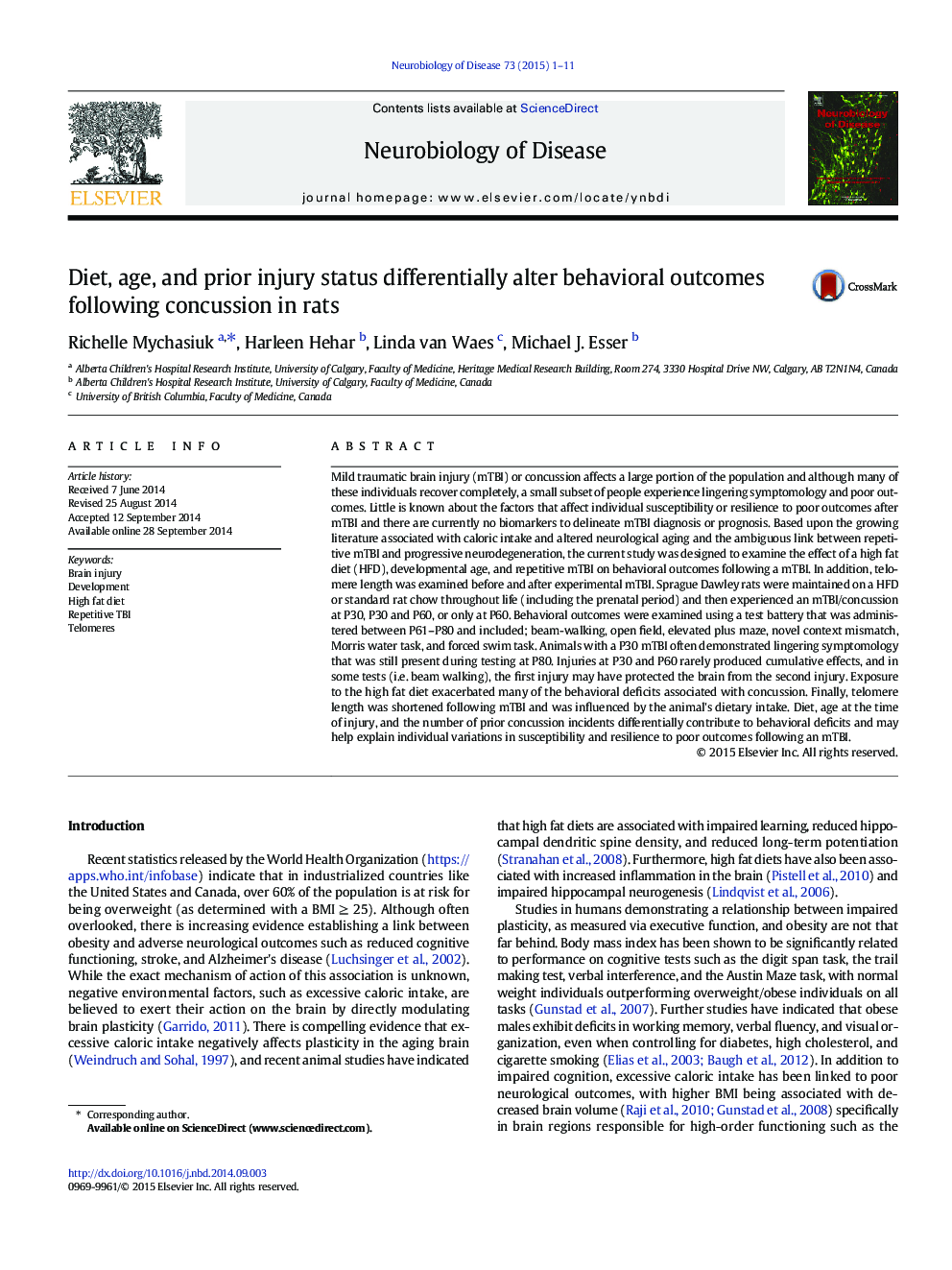| کد مقاله | کد نشریه | سال انتشار | مقاله انگلیسی | نسخه تمام متن |
|---|---|---|---|---|
| 6021665 | 1580650 | 2015 | 11 صفحه PDF | دانلود رایگان |
- Brain health is impacted by cumulative risk factors such as poor diet and injury.
- Repetitive concussion does not always produce additive effects on outcomes.
- A high fat diet may intensify negative outcomes associated with mild brain injury.
- Concussions early in life may increase the risk for lingering symptoms.
- Mild brain injury significantly shortens telomere length in peripheral cells.
Mild traumatic brain injury (mTBI) or concussion affects a large portion of the population and although many of these individuals recover completely, a small subset of people experience lingering symptomology and poor outcomes. Little is known about the factors that affect individual susceptibility or resilience to poor outcomes after mTBI and there are currently no biomarkers to delineate mTBI diagnosis or prognosis. Based upon the growing literature associated with caloric intake and altered neurological aging and the ambiguous link between repetitive mTBI and progressive neurodegeneration, the current study was designed to examine the effect of a high fat diet (HFD), developmental age, and repetitive mTBI on behavioral outcomes following a mTBI. In addition, telomere length was examined before and after experimental mTBI. Sprague Dawley rats were maintained on a HFD or standard rat chow throughout life (including the prenatal period) and then experienced an mTBI/concussion at P30, P30 and P60, or only at P60. Behavioral outcomes were examined using a test battery that was administered between P61-P80 and included; beam-walking, open field, elevated plus maze, novel context mismatch, Morris water task, and forced swim task. Animals with a P30 mTBI often demonstrated lingering symptomology that was still present during testing at P80. Injuries at P30 and P60 rarely produced cumulative effects, and in some tests (i.e. beam walking), the first injury may have protected the brain from the second injury. Exposure to the high fat diet exacerbated many of the behavioral deficits associated with concussion. Finally, telomere length was shortened following mTBI and was influenced by the animal's dietary intake. Diet, age at the time of injury, and the number of prior concussion incidents differentially contribute to behavioral deficits and may help explain individual variations in susceptibility and resilience to poor outcomes following an mTBI.
Journal: Neurobiology of Disease - Volume 73, January 2015, Pages 1-11
